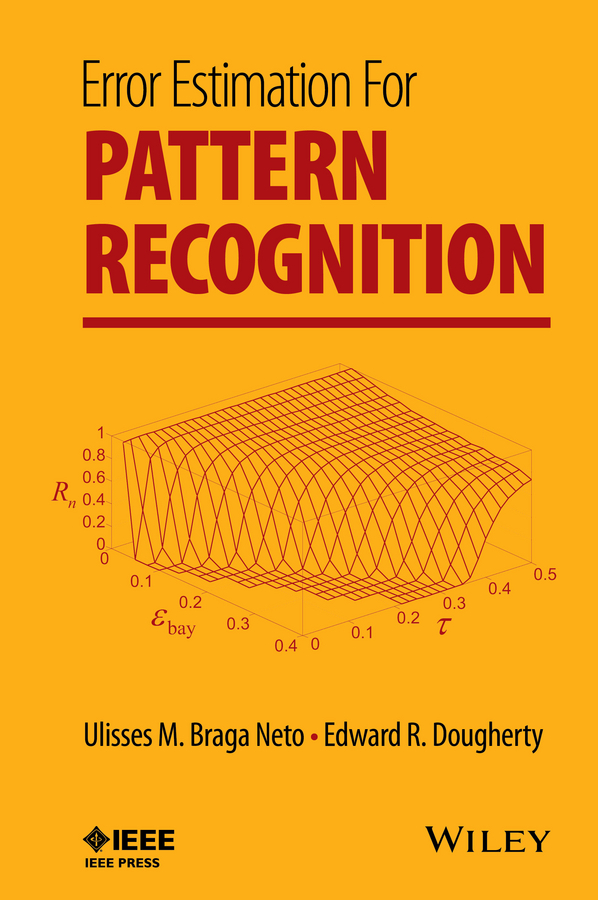Электронная книга: Edward R. Dougherty «Error Estimation for Pattern Recognition»

|
This book is the first of its kind to discuss error estimation with a model-based approach. From the basics of classifiers and error estimators to distributional and Bayesian theory, it covers important topics and essential issues pertaining to the scientific validity of pattern classification. Error Estimation for Pattern Recognition focuses on error estimation, which is a broad and poorly understood topic that reaches all research areas using pattern classification. It includes model-based approaches and discussions of newer error estimators such as bolstered and Bayesian estimators. This book was motivated by the application of pattern recognition to high-throughput data with limited replicates, which is a basic problem now appearing in many areas. The first two chapters cover basic issues in classification error estimation, such as definitions, test-set error estimation, and training-set error estimation. The remaining chapters in this book cover results on the performance and representation of training-set error estimators for various pattern classifiers. Additional features of the book include:• The latest results on the accuracy of error estimation • Performance analysis of re-substitution, cross-validation, and bootstrap error estimators using analytical and simulation approaches • Highly interactive computer-based exercises and end-of-chapter problems This is the first book exclusively about error estimation for pattern recognition. Ulisses M. Braga Neto is an Associate Professor in the Department of Electrical and Computer Engineering at Texas A&M University, USA. He received his PhD in Electrical and Computer Engineering from The Johns Hopkins University. Dr. Braga Neto received an NSF CAREER Award for his work on error estimation for pattern recognition with applications in genomic signal processing. He is an IEEE Senior Member. Edward R. Dougherty is a Distinguished Professor, Robert F. Kennedy’26 Chair, and Scientific Director at the Center for Bioinformatics and Genomic Systems Engineering at Texas A&M University, USA. He is a fellow of both the IEEE and SPIE, and he has received the SPIE Presidents Award. Dr. Dougherty has authored several books including Epistemology of the Cell: A Systems Perspective on Biological Knowledge and Random Processes for Image and Signal Processing (Wiley-IEEE Press). Издательство: "John Wiley&Sons Limited"
ISBN: 9781119079330 электронная книга Купить за 10424.97 руб и скачать на Litres |
Другие книги схожей тематики:
| Автор | Книга | Описание | Год | Цена | Тип книги |
|---|
См. также в других словарях:
Pattern theory — Pattern theory, formulated by Ulf Grenander, is a mathematical formalism to describe knowledge of the world as patterns. It differs from other approaches to artificial intelligence in that it does not begin by prescribing algorithms and machinery … Wikipedia
Density estimation — In probability and statistics, density estimation is the construction of an estimate, based on observed data, of an unobservable underlying probability density function. The unobservable density function is thought of as the density according to… … Wikipedia
Neural network — For other uses, see Neural network (disambiguation). Simplified view of a feedforward artificial neural network The term neural network was traditionally used to refer to a network or circuit of biological neurons.[1] The modern usage of the term … Wikipedia
Artificial neural network — An artificial neural network (ANN), usually called neural network (NN), is a mathematical model or computational model that is inspired by the structure and/or functional aspects of biological neural networks. A neural network consists of an… … Wikipedia
List of statistics topics — Please add any Wikipedia articles related to statistics that are not already on this list.The Related changes link in the margin of this page (below search) leads to a list of the most recent changes to the articles listed below. To see the most… … Wikipedia
Support vector machine — Support vector machines (SVMs) are a set of related supervised learning methods used for classification and regression. Viewing input data as two sets of vectors in an n dimensional space, an SVM will construct a separating hyperplane in that… … Wikipedia
